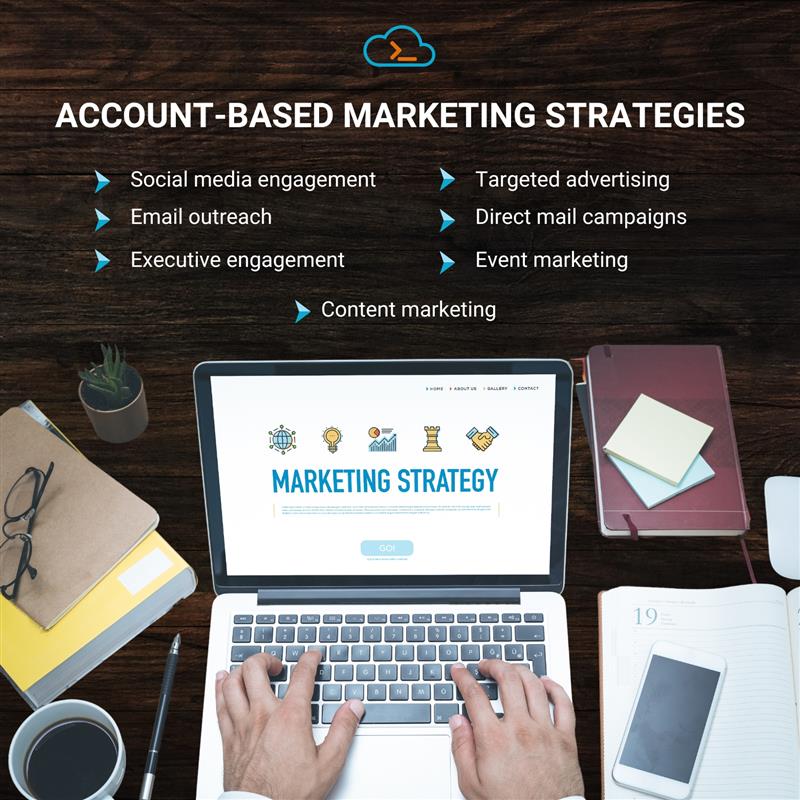What We Cover In This Blog?
Key Takeaways
- Focus on quality accounts, not quantity. Build personalized relationships that drive growth.
- Target ideal customers. Tailor marketing efforts to their specific needs and challenges.
- Personalize communication across digital channels. Make it resonate with each account.
- Align sales & marketing for a seamless buying experience for targeted accounts.
- Track engagement & pipeline growth. Use data to optimize your ABM strategy.
Benefits Of Account-Based Marketing
Targeting high-value accounts with a tailored approach can change the way you engage with your paying customers. Although this approach may differ from your usual method, it offers numerous benefits. Take a look at the advantages below that the best digital marketing agency in India offers:- Higher ROI ABM targets high-converting, high-value accounts to improve marketing ROI (return on investment).
- Shorter Sales Cycle ABM can shorten the sales cycle by using customer data and delivering highly relevant marketing messages, thus accelerating customer decision-making and sales processes.
- Marketing and Sales Alignment ABM requires smooth integration between sales and marketing teams to ensure a shared focus on targeted accounts.
- Better Resource Allocation With ABM, you target every dollar spent, making your marketing budget more effective.
- Enhanced Engagement Personalizing the customer experience is key to ABM. Addressing the specific needs of each customer lifetime, each account creates engagement and satisfaction, as opposed to a generic approach.
- Increased Customer Retention ABM strategies aim to engage specific accounts, yielding higher engagement than generic or marketing automation tactics.
- Better Customer Experience ABM helps build lasting and meaningful customer relationships with key accounts by understanding and meeting their unique needs.
- Better Analysis Track key metrics like account engagement and impact on pipeline growth (IAP) to measure the effectiveness of your ABM strategy and make data-driven adjustments.

Account-Based Marketing Strategies
To successfully implement account-based marketing automation tools, it’s essential to adopt a more strategic approach and rethink how you engage with your target accounts. This shift in mindset is more important than simply upgrading your marketing automation tools or technology.1. Social Media Engagement
Social media is a powerful interactive tool that engages with the audience interactively and informally. It provides a great opportunity to build strong customer relationships with your key accounts and increase brand awareness. Using social listening tools, you can monitor mentions of your target accounts and find chances for engagement. Sharing content that addresses their interests and challenges is a great way to boost visibility.2. Targeted Advertising
To take your advertising game to the next level, consider leveraging digital advertising on social media platforms to serve ads that are specifically tailored to individuals within your target accounts. By using targeted ads, you can increase visibility and physical engagement with key decision-makers, keep your brand top-of-mind, and drive more action. It’s a smart strategy that can help you reach your goals more effectively.3. Email Outreach
Email plays a vital role in direct communication. Personalized emails can significantly channel engagement scores by delivering personalized content that resonates with the recipient’s specific challenges and goals. Insights from your account research can be used to segment your email lists. Tailor your messages based on the account’s industry, role in the buying or sales process, and specific pain points. Automation tools can help you scale this personalization, triggering emails based on specific actions or milestones.4. Direct Mail Campaigns
In today’s world, where digital marketing is given more importance, direct mail still holds a significant place in modern-day marketing efforts and campaigns. It provides an opportunity to invest in the relationship with personalized notes, gifts, branded swag, or informative materials relevant to the recipient’s business needs. By ensuring that your direct mail is valuable or useful, you can give your brand a positive association, kickstart a conversation, and create a lasting impression.5. Executive Engagement Strategies
When it comes to closing a deal, executives can often be the key players. Therefore, instead of relying solely on the sales and marketing teams, it is advantageous to facilitate engagement tactics and make a connection between your executives and those of the companies you are targeting. This strategy of executive engagement conveys a high level of dedication to the account and provides an opportunity for account executives to build robust relationships at the highest level.6. Event Marketing Team
One of the best ways to build strong relationships with your target accounts is by organizing exclusive events. These events further help to build appropriate business and personal relationships with customers beyond text and create a meaningful impact. To make the most of these events, you can host webinars, roundtables, or workshops that address specific industry issues or industry trends relevant to your target accounts. You can also invite industry experts as guest speakers to add more value and attract more attendees.7. Content Marketing
Content marketing helps establish the brand as an expert and a trustworthy advisor in the industries of your target accounts. You can achieve this by sharing and creating valuable content, blog posts, white papers, and videos that address the challenges and opportunities of your target accounts. By using account insights and engagement data provided by content marketing services to guide your content strategy, you can ensure that the content you produce is highly relevant to your audience. This strategy will help you build a strong relationship with your target accounts and position your brand as a resource for valuable insights and solutions.Account-Based Engagement
Account-based engagement, a key component of account-based marketing, focuses on reaching high-potential B2B (business-to-business) prospects through key performance indicators like personalized messaging, experiences, and direct outreach alone. The primary objective of ABE is to generate high-value leads, thereby enhancing the ROI of marketing campaigns. ABE involves a thorough analysis of past and present clients and data-driven insights, as well as a deep understanding of the behaviors and motivations of high-value accounts.Conclusion
Establishing and maintaining customer engagement is a key business objective. ABM engagement tools can help businesses achieve this objective by analyzing and prioritizing account information, collaborating effectively, and targeting high-value accounts. These tools can also personalize content, monitor engagements, and create new revenue streams, driving growth, success, and meaningful relationships.Frequently Asked Questions
Is ABM right for my business?
ABM is suitable for businesses with high-value accounts, longer sales cycles, resources for personalized campaigns, aligned sales, and marketing teams, and clear measurable goals for outcomes. Assess these factors to determine if ABM aligns with your business strategy.How do I define ideal customer profile (ICP) ?
Defining an Ideal Customer Profile (ICP) is crucial to target the right audience. Identify commonalities among your best clients, such as industry size, revenues, location, and challenges. Collaborate with sales and customer service staff to gather this information efficiently. Use this to create your ideal client profile, which identifies similar businesses to target in your ABM campaign.Is Account-Based Engagement (ABE) the same as Account-Based Marketing(ABM)?
Account-based marketing (ABM) is a strategy that optimizes marketing efforts for specific customers. A recent survey found that 80% of firms are more satisfied with their marketing strategy than with other methods, with ABM being one such strategy. Success in the ABM industry requires a cohesive and committed marketing and support team. ABM is a broad term that covers targeted key accounts.
Aparna Sushumna
About The Author…
Aparna Sushumna, a mother to a hyperactive toddler who is all over the house. I aspire to be a decent content developer. A Bachelorette of technology says my qualification but I anticipated being a singer. Thanks to the recession, I dwelled into various jobs, from coding to being a tech support executive to a help desk professional, only to conclude that there is something else I wish to do. Here I am to accomplish my profound passion for content writing. Music, nature, jewelry, beauty, mythology, life quotes, celebs, and their life, being my areas of interest.

